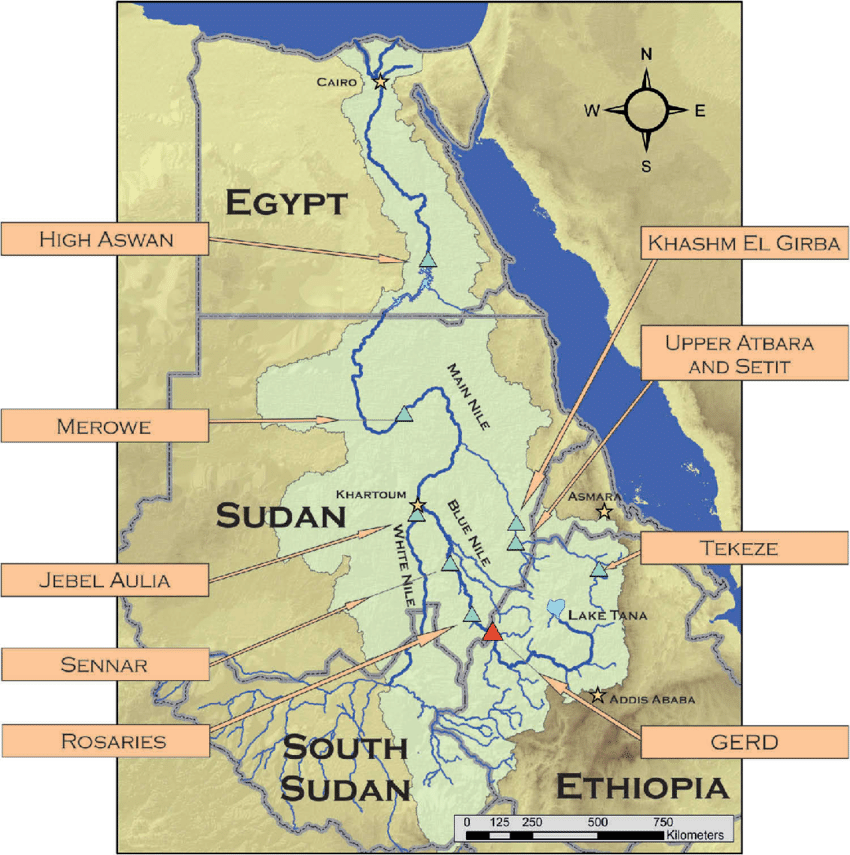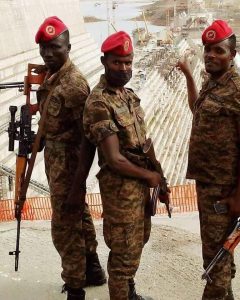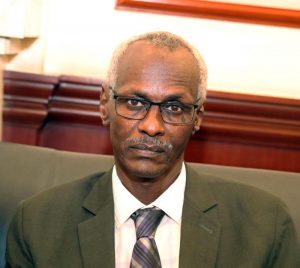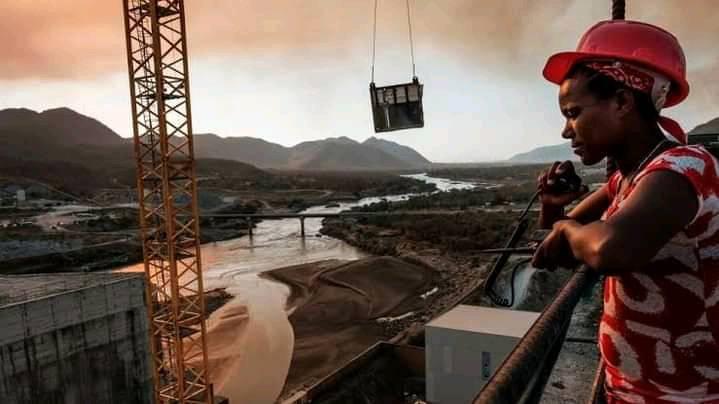Ethiopia determined to fill Dam amidst regional concerns
17 June 2021
With the second filling of the Grand Ethiopian Renaissance Dam (GERD) approaching, Sudan has expressed concerns regarding the impact of the filling on its people and their activities, while taking measures to mitigate the effect.
On Tuesday, during the 33rd Eastern Nile Council of Ministers (ENCOM) meeting held in Addis Ababa, Ethiopian Minister of Water Resources Sileshi Bekele declared that the second round of filling the Dam would continue regardless of regional concerns. Ethiopia’s minister of irrigation also confirmed the filling of the dam at the meeting, saying that the issue is not up for debate. Egypt, who did not attend the meeting, stated that it is pursuing a diplomatic solution to the issue.

The Grand Ethiopian Renaissance Dam is Africa’s largest hydropower project, set to transform the lives of millions of Ethiopians, while Sudan and Egypt want an agreed regulation to the flow of water as the rainy season approaches and the reservoir behind the Dam may fill up for a second year without any set regulations.
 International pressures
International pressures
While officials met in Addis on Tuesday, Arab League Foreign Ministers also met in Qatar to address the Dam issue. Arab League Secretary-General Ahmed Aboul Gheit stated that Arab countries will keep pushing the United Nations Security Council to hold an urgent session on the GERD, stressing the leagues’ support of Sudan and Egypt’s calls for a UN intervention.
Ethiopia – who previously rejected Sudan’s proposals to involve mediators on the African Union (AU) led talks – responded to the Arab League’s announcements through an official statement on its Foreign Ministry’s Twitter account; saying that Ethiopia rejects the “resolution” of the league in its entirety.
“As a result of its egregious support to the baseless claims of Egypt and Sudan regarding GERD, the Arab League has already squandered its opportunity to play a constructive role. It should be abundantly clear that futile attempts like this to internationalize and politicize the GERD will not lead to sustainable regional cooperation,” the statement reads.
Impact of the second filling
Convinced Ethiopia will fill the massive Dam in July, Sudan’s Minister of Water and Irrigation, Yasir Abbas, is calling for an urgent interim agreement with Ethiopia. The minister says Sudan is willing to sign partial interim agreements concerning the filling process and future operations -–if previous points agreed upon by Ethiopia, Sudan, and Egypt are confirmed and a clear timetable is set for further discussions.
Yasir Abbas is particularly concerned over the effects filling the GERD will have on Sudan’s Roseires Dam –which is situated only 200 km apart from the GERD. “Without an agreement, the GERD becomes a direct threat to Roseires Dam, as it’s impossible to know how much water should be released to operate,” Minister Abbas said. Without shared data on dam operations between the two countries, the minister added, agriculture and power generation will be affected along the Blue Nile.

The greatest concern is the lack of information and data regarding water levels, the Manager of Sudan’s Nile River Water Department within the ministry, Abdul Rahman Saghyroun, told Ayin. “We have had to change the operating system of our dams, and this has impacted communities, their economic activities, power generation, and agriculture,” he said. The manager explains that they had to change the dams filling schedule as a precaution before the second filling of the GERD, as they lack the data to know how much water will be stored and released via the GERD. “This year one more billion cubic meters was stored in Roseires Dam and three-quarters of this amount for Jebel Awlia Dam,” Saghyroun said, as a precaution vis-à-vis the GERD. “Farmers and cattle owners near the dams had to change their plans – we alerted the communities regarding this.” Without the data to know how much water to keep and to release, some grazing lands near Jebel Awlia Dam are now flooded, he said, while farmers downstream struggle with limited water supplies. Hydropower generation, a crucial source of Sudan’s electricity supply, is also limited since water is being stored instead of released for hydropower, Saghyroun added.
But Minister Abbas’ public claims filling the GERD without a deal as a “direct threat to Sudanese dams’ operation” may prove an exaggeration. According to Saghyroun, agriculture on big schemes such as Al Gezira, Rahad, and others will not be significantly impacted as the stored water will be used for irrigation. The water expert also believes fears of flooding due to the GERD’s filling this year are unrealistic unless the Blue Nile experiences severe heavy rains leading to flooding. Even Egypt’s Foreign Minister, Sameh Shoukry, said back in May that the country would not be significantly impacted by the filling. According to Peter Hany, professor of irrigation and hydraulics at Egypt’s Ain Shams University, Egypt’s Nile River water supply will only be threatened by the GERD filling in case of prolonged drought.

Politics vs. technicalities
Minister Abbas’s tone over the Dam has changed over the past year, from expressing full support to a dire portent. “When discussing the Dam, Sudan’s rhetoric has moved from being broadly welcoming to being suspicious and belligerent,” writes journalist Zeinab Mohammed. “This change, in large part, reflects the increasing influence of the military in the transitional government.”
According to a high-ranked Sudanese official linked to the Dam negotiations that preferred anonymity, the technical negotiations between the three countries over GERD are practically resolved, only politics hamper an agreement. “Regarding technical aspects; almost all the issues are settled, but the over-politicization of the issue makes it hard to reach a deal,” the source said. “Statements such as saying that 20 million people on the Blue Nile will be impacted, emphasizing on the negative impacts and exaggerations from officials and the media are a proof of that.” The official believes that, if an agreement is reached, GERD will be beneficial for Sudan in terms of regulating water levels, assisting farmers, and mitigating floods. Minister Abass also acknowledged that only a small number of issues need to be resolved via the GERD and that the Dam could potentially help introduce regular farming to the country instead of seasonal.
One of the main sticking points in the negotiations involves international mediators. Sudan, seeing little progress in previous talks, insists the mediation requires a greater role for the African Union (AU) and other international actors. Perhaps fearing outside interference, Ethiopia has refused the proposal. “Since October last year, our position is the same; the way of negotiations must change,” the minister said. “Sudan’s opinion is that the AU’s role in the talks should be supported by the quartet mediation (the African Union, United Nations, United States, and European Union) under its leadership.” The minister’s desire for greater international involvement may be linked to an April interview on Sudan’s State television where he accused the African Union of bias “to some extent” towards Ethiopia during its year-long tenure as a sponsor of negotiations between the three countries. “The African Union did not bother to respond to Sudan’s complaint about the first filling,” Minister Abbas said in the televised interview.
Presently, however, there is no set date for talks between the three countries to resume. But despite nationalistic, saber-rattling rhetoric from all three nations, Sudan is preparing a legal solution to the impasse, not a military one. “This is one of the things discussed by the legal team”, he said, “we are just waiting for the suitable time to use it.”


